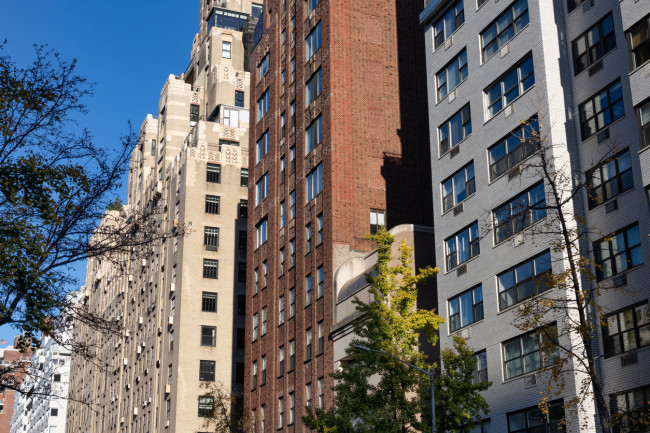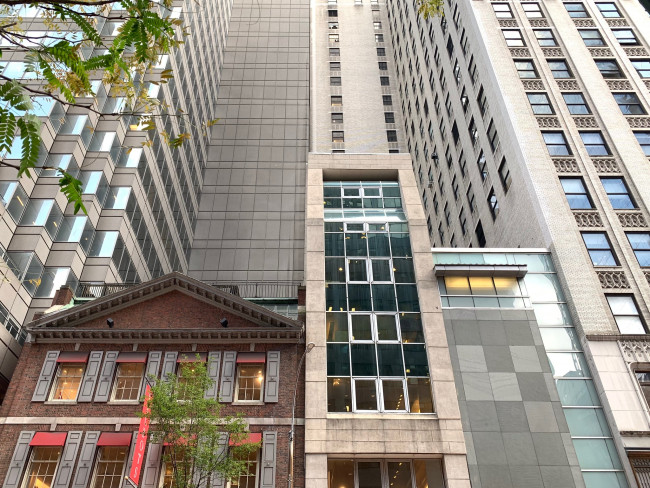- Anticipate shareholders' or owners' questions and be prepared to answer them
- Make sure relevant parties can attend like your building’s engineer or accountant

Your annual meeting is a great opportunity for condo and co-op board members to provide building updates to residents.
iStock
Holding an annual meeting for your New York City co-op or condo building may seem like a routine function, but it is a crucial part of managing a building.
Your annual meeting is a great opportunity to inform owners or shareholders about what’s going on in your building—be it a major renovation or just some new paint in the hallways—as well as elect members to the board.
While annual meetings and elections can sometimes get heated, boards that prepare well in advance should be able to keep things running smoothly, says Mark Foley, co-founder and president of The Folson Group, a co-op and condo building consultancy firm.
“It's kind of like the State of the Union: you want to explain the state of the building and what's going on,” Foley says. “You also want to anticipate any problems and questions so that you have an answer.”
The best way to prepare for an annual meeting is to communicate with residents throughout the year, so the board has a strong understanding of what residents want to hear about, Foley says.
There are a handful of other steps you can take to make sure your meeting runs as smoothly as possible. You should make sure you understand what shareholders or owners will want to talk about, have the relevant experts in attendance, secure a space big enough for your building and notify residents of the meeting ahead of time.
Most importantly, you should understand your bylaws, as they govern how annual meetings and elections will take place.
Read on for five tips on how to prepare for an annual meeting.
1. Engage your shareholders
The key to a healthy annual meeting is communication, Foley says. The board should be communicating with building residents so no one is blindsided during the annual meeting.
“You would like to have communicated during the year so there aren’t any major surprises in the meeting.” Foley says. “You want to be very honest, transparent, and forthcoming.”
The board should also have a strong sense of what kind of questions residents are going to ask—and they should have answers, says Corinne Arnold, a managing partner at EZ Election Solutions, which manages condo and co-op elections.
“You don’t want to go into an annual meeting ill-prepared and not speaking to things that are relevant to everyone in the building,” Arnold says. “If you're talking about paint color in the hallways, but you just had a $10,000 assessment per apartment, you're probably off the mark.”
2. Understand your bylaws and state law
It’s difficult to overstate the importance of knowing your building’s bylaws ahead of your annual meeting and election. The bylaws will govern how early you have to notify residents of the meeting, the order of what’s discussed, the amount of residents required to be present to even have an election, and how votes are counted.
New York state’s business corporation laws also have some restrictions on how co-ops operate. Co-ops are required to hold annual meetings under state law, says Margery Weinstein, a partner at the law firm Schwartz Sladkus Reich Greenberg Atlas.
Some provisions of the business corporation laws will apply to condos as well, says Steve Wagner, a partner at Adam Leitman Bailey. Make sure to take a look at the relevant state law before your meeting.
3. Secure a space and format
You should identify a space for your annual meeting at least two months in advance of the meeting itself, Weinstein says. Oftentimes that space is the lobby of your building, but in large properties you may need to rent a nearby space to accommodate the residents in attendance.
Co-ops can also hold shareholder meetings virtually under a 2021 law, which helped residents meet safely during the Covid-19 pandemic and helped speed board operations. But moving into the digital world requires a little extra thought: If you’re meeting both online and in-person, does your physical space have wifi? Can it connect virtual attendees with in-person ones? Is there a way for virtual attendees to vote?
If you’re meeting completely online, Arnold recommends making security a priority. Don’t vote in a public chat room where all the residents can see each other’s votes. And make sure that only residents can join the meeting so there’s no risk of malfeasance.
4. Confirm your attendees
The board shouldn’t be the only building leadership in attendance at an annual meeting. The annual meeting is a great time to update residents on important building-wide issues, and those updates might require more expertise than the board can provide.
For example, if your building is embarking on a major capital project, you should consider bringing in your architect or engineer to talk about how that project will impact the building. You can even invite local elected officials or community representatives if there’s a neighborhood issue to discuss.
You’ll also want your property manager, lawyer, and accountant at the meeting regardless of what you plan to discuss. They can field questions about the building’s operations, finances, and handle any confusion relating to the bylaws or the election. Make sure to reach out to your professionals well in advance to ensure that they’ll be in attendance.
5. Send out your meeting notice
Condo and co-op buildings are required by their bylaws to email or mail a notice of an annual meeting to residents, usually between 10 and 50 days prior to the meeting itself, says Andrew Freedland, a partner at law firm Herrick Feinstein. But you should make sure to check your bylaws for your specific rules.
The person in charge of sending out the notices—often the property manager—will also usually sign an affidavit of mailing: a document certifies that the notices were sent out. That document can then be reviewed by residents during the meeting, Freedland says.
You Might Also Like
Sign Up for our Boards & Buildings Newsletter (Coming Soon!)
Thank you for your interest in our newsletter. You have been successfully added to our mailing list and will receive it when it becomes available.



























